From October 16 to 20, 2024, the Belt & Road Finance EMBA (BRI EMBA) kicked off the Hungarian module, and the students visited the central bank of Hungary (MNB), the Wigner Institute of Physics, Fasor High School and other institutions. They also communicated with the local executives of Chinese-funded enterprises, gained an in-depth understanding of the current status and investment environment of the Hungarian economy, and also provided suggestions and ideas for the sustainable development of Chinese-funded enterprises in Hungary under the Belt & Road Initiative.
On October 6, 1949, right after the founding of the People's Republic of China, Hungary quickly established diplomatic relations with China. From May 8 to 10, 2024, Chinese President Xi Jinping paid a state visit to Hungary. During the visit, China and Hungary signed a number of cooperation documents. Hungary, a central European country located in the geographical center of Europe, is known as the crossroads of East and West. In recent years, Hungary has become an important bridgehead for Chinese companies to enter the European market.
Hungary has the highest number of Nobel Prize winners per capita, with a total population of under 10 million and 14 Nobel laureates to date. They have made outstanding contributions to mankind in the fields of mathematics, medicine, literature, physiology, and physics. To this end, the course module also included an exploration of the development of science and technology education in Hungary.
On the afternoon of October 16th, BRI EMBA students and students visited the central bank of Hungary (MNB), which coincided with the bank's centennial celebrations. For a long time, MNB and the People's Bank of China (PBC) have maintained close friendship and cooperative relations, and the interaction between the top executives of the two sides is frequent and deep. During the visit, Barnabás Virág, Vice President of MNB, delivered a welcome speech. In the subsequent symposium, the heads of various departments of MNB gave in-depth explanations on various topics such as monetary policy, digital transformation, green finance, and the Hungarian securities market, and actively interacted with the students. After the seminar, the students were led by the staff to visit the Hungarian Numismatic Museum and gain a deeper understanding of the financial history and culture of Hungary.
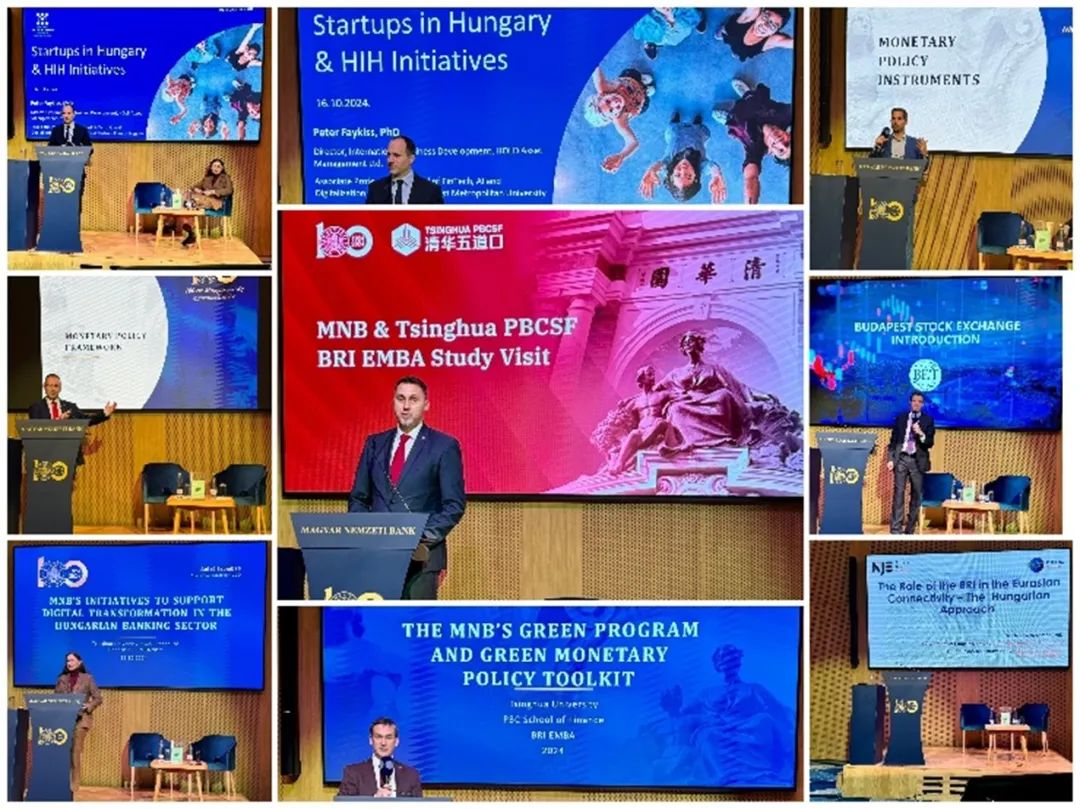
A collection of photos from the symposium
On the morning of October 17, the students arrived at Wanhua Borsod Chemical Group and exchanged views with some Chinese-funded enterprises in China and Hungary. Borsod is a large Hungarian chemical company; In 2011, Wanhua Chemical paid 1.26 billion euros to acquire 96% of the shares of Borsod Chemical, becoming one of the largest investments of China in Central and Eastern Europe. The "China-Hungary Borsod Economic and Trade Cooperation Zone" built by Wanhua Investment has been certified at the national level, which is not only an important link to deepen Sino-Hungarian economic ties, but also a specific measure for the company to fully respond to the “Belt & Road Initiative”. Mr. Hong Kai, Investment Director of Wanhua Borsod, shared the tortuous experience of acquisition and integration, and the students learned a lot from the valuable experience of the pioneers.
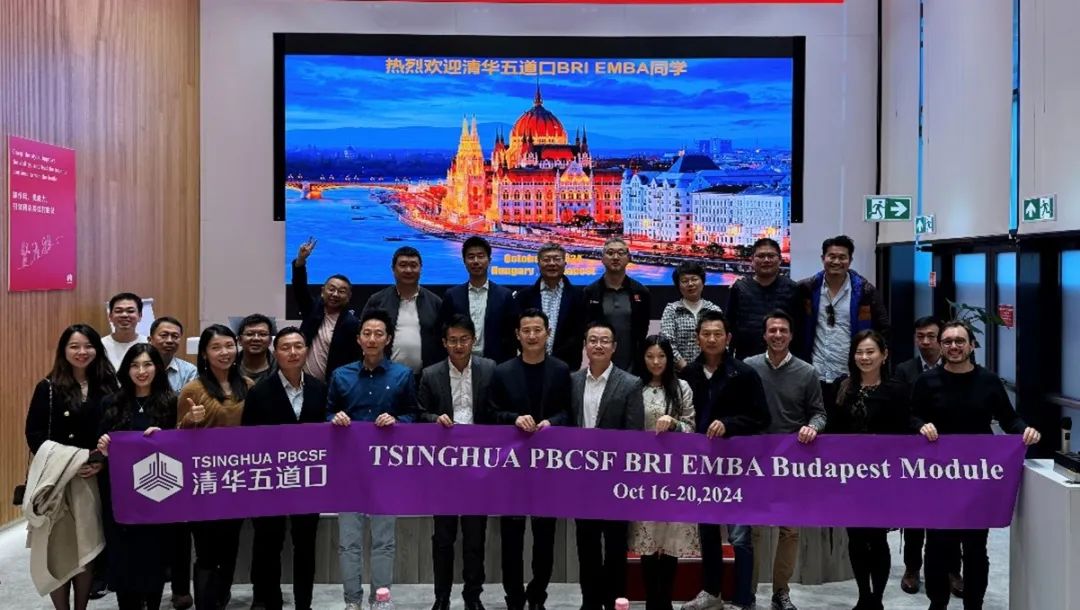
A group photo of the visit
In the afternoon of the same day, Prof. Yang Qinghong, an industry mentor of BRI EMBA and senior Wall Street investor at PBC School of Finance, Tsinghua University, led the students to the Wigner Research Centre for Physics (HUN–REN Wigner Research Centre for Physics). Named after Nobel laureate Eugene Paul Wigner of 1963, the institute was established in 2012 by the merger of several research institutes, and its current research interests include high-energy nuclear and particle physics, data centers, GPU labs and quantum computing, and gravitational wave research. At the Wigner Institute of Physics, Director Peter Levai warmly received the teachers and students, gave a speech on the present and future of the institute, and invited two experts to present their specific projects.
Professor Yang Qinghong studied under Frederick Seitz (Wigner's first Ph.D., former President of the US National Academy of Sciences and President of Rockefeller University), and Nick Holonyak, the inventor of LED (whose PhD advisor was John Bardeen, Wigner's second Ph.D. student, and two-time Nobel Prize winner in physics). Prof. Yang said that this visit to the institute is to experience how the new generation of scientific researchers can carry on the torch of their predecessors and promote the exploration of nature; On the other hand, in view of the current wave of science and technology, entrepreneurs should not only benefit from scientific and technological progress, but also strive to experience the process of scientists exploring the unknown, inventing and creating, draw strength from it, and constantly propel enterprises toward a higher level of science and technology application for original innovation.
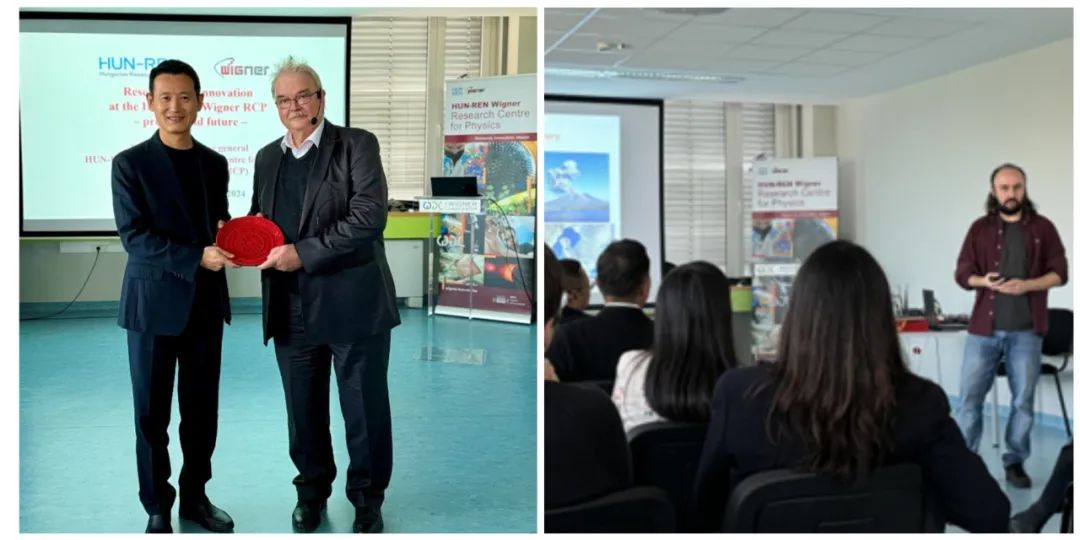
Prof. Yang Qinghong presenting souvenirs and photos of the symposium to Peter Levai
To decipher the driving force and its source of Hungarian scientific and technological development, Yang Qinghong also led the students to visit the high school where Eugene Paul Wigner and another science giant, John von Neumann, studied, Fasor Lutheran Senior High School. Here, teachers are good at discovering and unleashing the potential of young people, and the school has also published its own academic journal of mathematics, and has produced many epoch-making scientific masters. Today, the school is still full of science and art, constantly inspiring young people to love and actively explore science, laying a solid foundation for them to grow into talents with scientific literacy and humanistic spirits.
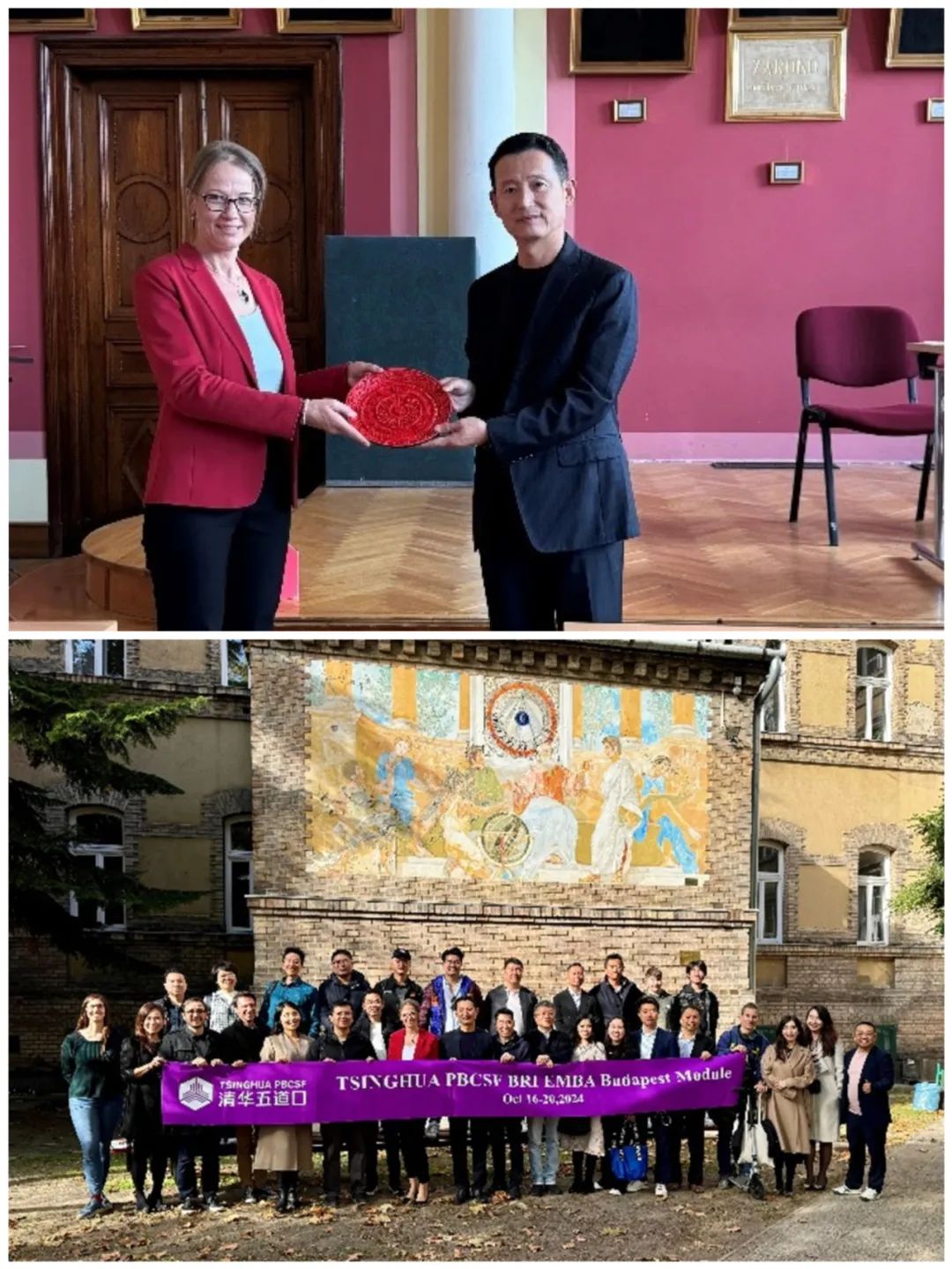
A group photo of Yang Qinghong presenting souvenirs to the director of Fasor High School
In the ensuing two-day course, Yang Qinghong used a large number of examples to clarify the concept of scientific and technological innovation, explain the cycle of scientific and technological development, introduce his original "four-step ladder" method of technology investment, and show the students how to use this tool to avoid pitfalls and achieve successful investment. In addition, Yang Qinghong also explained the impact of psychological factors on investment decisions and the short-selling mechanism.
At the end of the Hungarian module, László György, Associate Professor at Johann von Neumann University, was invited to teach in the course. From 2018 to 2022, László served as State Secretary for Economic Strategy and Regulation at the Hungarian Ministry of Innovation and Technology, where he was responsible for developing and implementing an economic action plan in response to the pandemic. From a clear and international perspective, he provided a detailed interpretation of the major turning points in Hungarian economic policy since 2010, an in-depth analysis of the global economy, and some practical solutions to the challenges. Laszlo's lecture not only explained the decision-making process of Hungarian economic policy, but also pointed out the possible directions of future economic strategy.
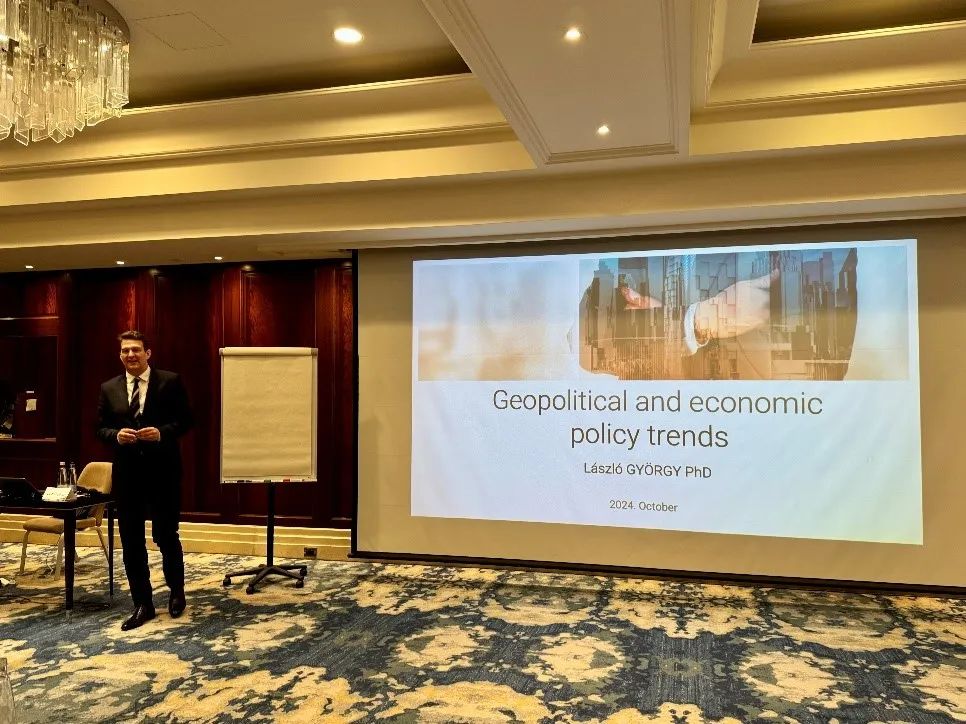
Laszló George
Finally, Adam Daniel Breuer-Zehevi, Senior Advisor to the Culture and Arts Department of the Central Bank of Hungary, gave another wonderful lecture to the visiting students. From the perspective of culture, history and education, he presented a three-dimensional and diverse Hungary, so that students have a deeper understanding of the cultural heritage and education system of Hungary.
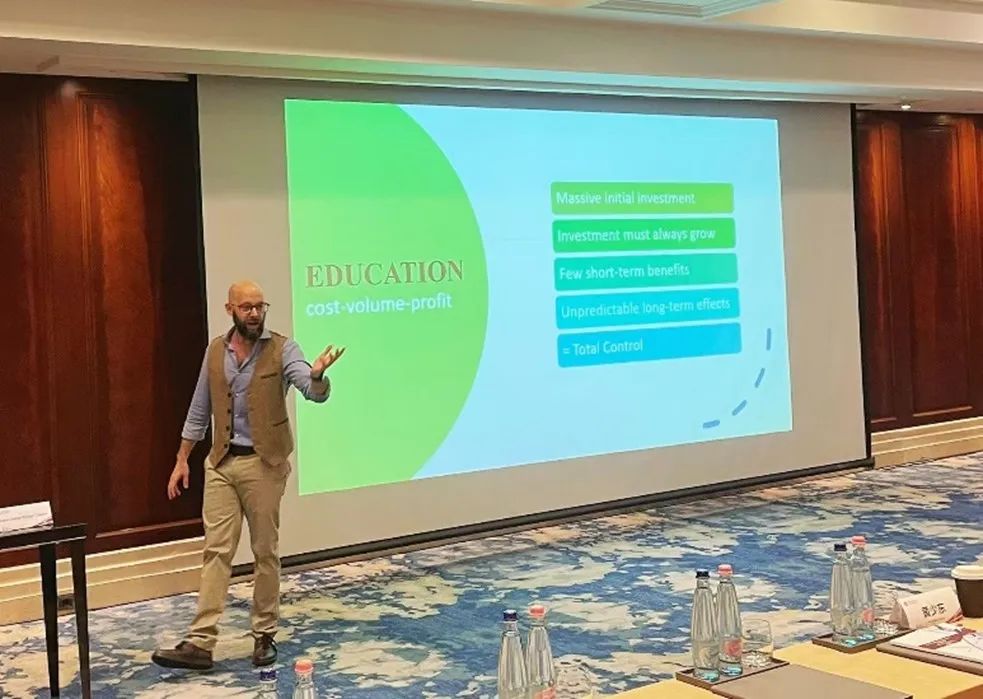
Adam Daniel Breuer-Zehevi